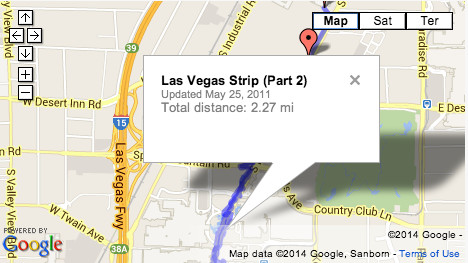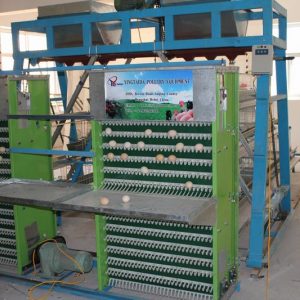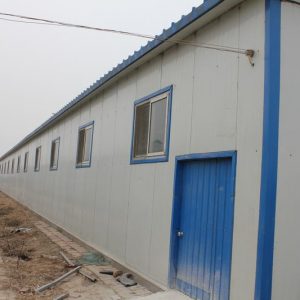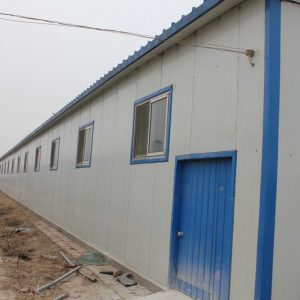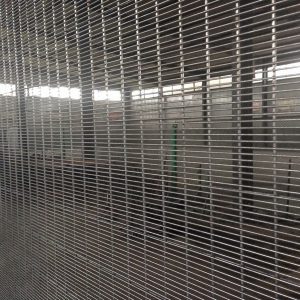
How to manage broiler production in summer?
In summer, the egg production of laying hens has dropped a lot. This is the voice of many farmers. How to reduce the negative impact of climate change on broiler production? The editor believes that the summer broiler production management can be done in three aspects: heatstroke prevention and cooling, feeding management, and disease control.
1. Improve heatstroke prevention and cooling hardware facilities
1. Check and maintain heatstroke prevention and cooling equipment such as fans, spray systems, and generators.
2. Equipped with sufficient electric fans, it is required that 1,000 chickens be equipped with a horn fan. The service department with insufficient fan configuration should do a good job of supplementing the fans.
3. Install spray devices, and actively install automatic spray devices in the house or roof sprinklers.
4. Do a good job in the greening of sports grounds, requiring extensive planting of trees around chicken coops and sports grounds, mainly deciduous trees such as neem trees.
5. Set up shading nets in the sports field, or build a pergola, spread straws or plant green vine plants such as water melon, pumpkin, and loofah.
6. The suspended ceiling of the chicken house, the new chicken house or the suitable condition of the chicken house, the promotion of the foam ceiling, and the effect of cooling through the ceiling insulation can also be achieved by adding an insulation layer on the roof.
7. Paint white to cool down. Use white paint and lime water to paint the walls and roof of the chicken coop facing the sun to refraction the sunlight, reducing the heat absorption and radiant heat of the walls and roof.
8. In areas with tight electricity consumption, households are required to equip small generators to prevent sudden power outages from causing electric fans, automatic spraying and other equipment to fail.
2. Strengthen the feeding and management of chickens in summer
1. Reduce the stocking density. The breeding density in summer should be 1-2 chickens per square meter lower than that in winter and spring. Pay attention to expand the pens in time.
2. For drinking water, use cool deep well water, mountain spring water, etc., and shade water towers and exposed water pipelines to prevent sun exposure from increasing the water temperature.
3. When the weather is good, actively graze to avoid stuffing the chickens in the coop for a long time. Cooperate with pergola and shade to promote sports field feeding, 2 drinking fountains, 4 feeding buckets/thousand chickens.
4. Reasonably arrange the feeding frequency and feeding time, mainly in the morning and evening when the weather is cool, and increase the use of wet feed.
5. Refer to the standard feed quantity, monitor the feed behavior of the raisers, reduce the feed-to-meat ratio, and increase feed remuneration.
6. Reserve an appropriate amount of anti-heat stress drugs, such as vitamin C, vitamin E, baking soda, Chinese herbal medicine, etc.
7. Keep the chicken house clean and hygienic, and clean up chicken manure and wet litter in time. The chicken house or sports field should have clean and fine sand to let the chicken sand bath to reduce heat stress.
3. Do a good job in preventing and controlling seasonal diseases
1. Fowlpox: It is required to inoculate fowlpox in strict accordance with the immunization procedure to prevent inevitable and leakage.
2. IBD: Focus on checking the inoculation quality of Welick in the hatchery, including the quality of the diluent, to ensure the occurrence of accidents such as leakage, error, and immune infection. At the same time, strengthen the management of the raisers to prevent the raisers from mixing the seedlings, and the bursal vaccine should be immunized in time for the flocks that have missed the vaccine.
3. Cholera: The incidence of cholera is high in summer and autumn, and disinfection should be strengthened. After the rain, the water in the sports field should be cleaned up in time.
4. Staphylococcal disease: strict disinfection of the inoculation equipment is required.
5. Parasitic diseases such as Carinella and coccidiosis: Use drugs to regularly deworm, remove weeds and stagnant water around chicken coops and sports fields in time, spread quicklime and caustic soda to reduce mosquito breeding.
6. Mildew: The litter should be exposed to the sun before use, and the cleaning of the litter should be speeded up to prevent the litter from becoming moldy; the feed should be stored in a dry and ventilated place to prevent rain and water.
7. Enteritis: Strengthen the disinfection of drinking water, chicken coops, and sports grounds, especially the disinfection and cleaning of drinking equipment and the monitoring of drinking water quality.
8. Disinfection with chickens: use a broad-spectrum, high-efficiency, non-toxic and side-effect, and highly adhesive disinfectant that can kill pathogenic microorganisms, purify the air in the house, and reduce the temperature of the chicken house.
